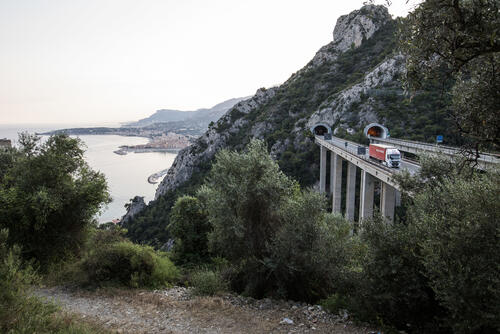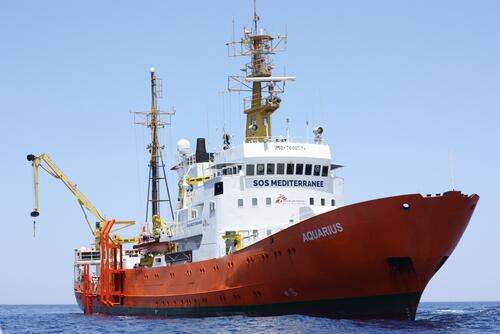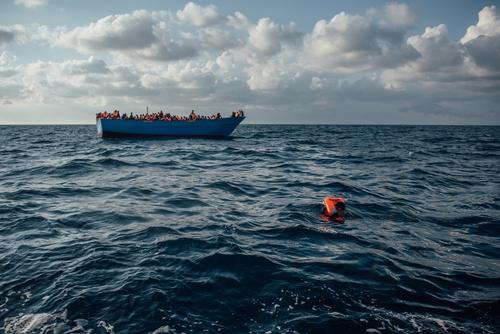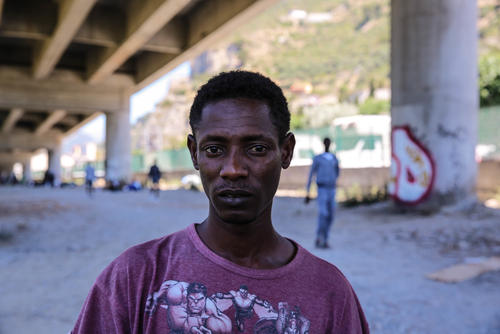The French authorities continue to violate the law and the rights of refugees and migrants on the Franco-Italian border on a daily basis.
These practices persist despite repeated calls from associations, the accumulation of damning conclusions by independent public authorities, and several convictions in court.
These are the findings of a new observation mission in which Médecins Sans Frontières (MSF) participated from 24 to 26 June 2018.
In Menton, first French city after Ventimiglia, on Italian territory, the re-establishment of border controls in 2015 became the pretext for the normalisation of many illegal practices, such as the systemic return of migrant people to Italy. This in particular prevents them from applying for asylum in France. Yet, both French law and international rules guarantee this right.
Also, the French authorities do not hesitate to return unaccompanied children who cross the border from Italy, turning a blind eye to their obligation towards children in danger and to their duty to protect this particularly vulnerable group.
In February 2018, together with local associations, lawyers and organisations such as La Cimade, Amnesty International, Médecins du Monde and the Secours Catholique, MSF started to document the situation and to call for the cessation of such actions.
Following these first observations, 20 cases of unaccompanied children being returned to Italy were referred to the Administrative Tribunal of Nice. The judge concluded that these practices were illegal and suspended the refusal of entry decisions against 19 minors.
On 2 May 2018, the Administrative Tribunal of Nice also recalled the obligation to respect the principle of non-return at the Franco-Italian border.
Similar conclusions and recommendations were expressed by independent public authorities such as the Defender of Rights, the Controller General of Places of Deprivation of Liberty, and the National Consultative Commission on Human Rights, all denouncing the “outlaw” situation in this border zone.
Nothing has really changed since then.
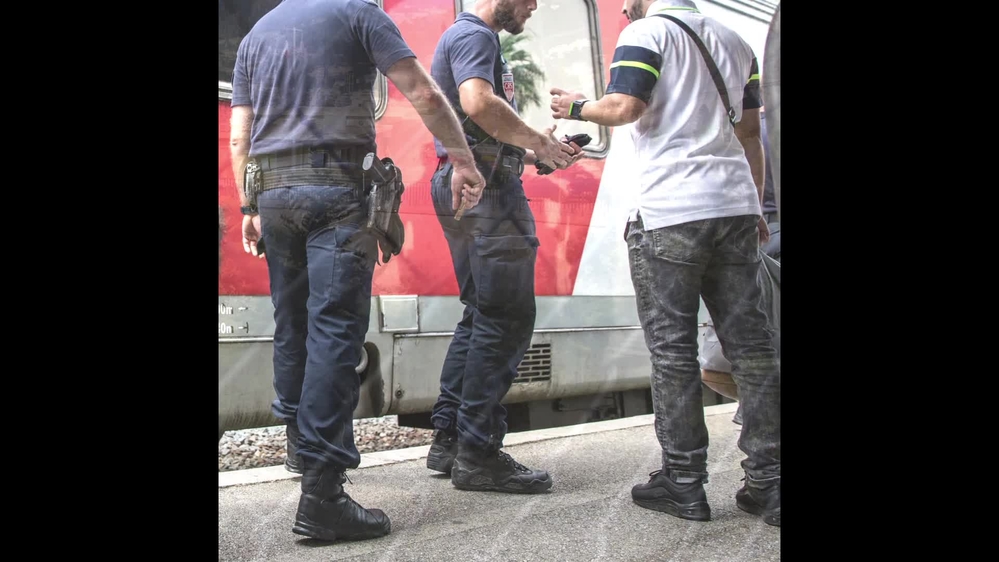
Asylum seekers denied rights in Menton, France
Persistent use of illegal practices
The 48-hour observation recently conducted on the Franco-Italian border by MSF and partner organisations has demonstrated the persistent use of illegal practices by the French authorities.
Between 24 and 26 June 2018, we were able to observe the following:
- 157 people were returned to Italy, without having the opportunity to apply for asylum or consideration of their individual situation.
- People who are subject to controls at the end of the day continue to be locked up at the police border office in Menton in conditions unworthy of human dignity, with neither access to information nor recourse. During the observation mission, 76 people were detained for up to 14 hours without any other form of trial. That is far beyond the duration of 4 hours considered admissible by the French Council of State in July 2017.
- The police did not take account of the minor status of 11 young people who were illegally returned to Italy, then escorted to France by the Italian police force.
On top of this, we observed daily tensions and a fatal pursuit of the cat and mouse game the French authorities are playing, in which people on the move are increasingly endangered. In trains coming from Ventimiglia, they are all stopped and controlled at Menton Garavan where, although prohibited, controls based on looks are the norm.
The ‘passage of death’
After an often chaotic journey, some do not hesitate to take additional risks to cross the border, sometimes risking their lives.
The ‘passage of death’ mountain path starts from Grimaldi, the last Italian village before France. Trodden throughout its history by political opponents and Jews fleeing persecution in Italy, it is now migrants anxious to evade police controls who trudge along this precipitous track.
Known to be particularly treacherous, this route is intersected by a motorway that transports endless heavy lorries. Some desperate refugees seeking to be less visible to customs officials do not hesitate to stowaway on them under the cover of darkness. This is where Milet, a 16-year-old girl from Eritrea, was killed. A minor, Milet would have been entitled to protection – if the state were not turning a deaf ear to such rightful claims.
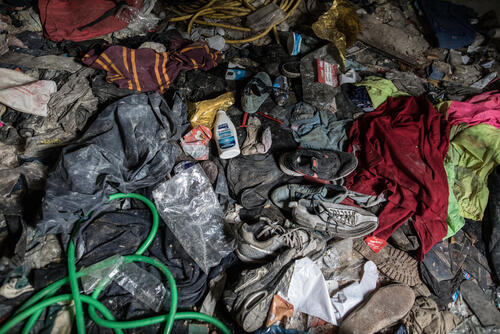
In a context marked by hypocrisy and inhumanity over issues related to the management of migration at European level, MSF and its partners call on the French and Italian governments to find ways of showing solidarity in the reception of migrants, rather than rejection, rhetorical escalation, and the systematic violation of rights.
MSF teams work in southern Italy and Sicily, the main places of arrival in Italy, and operate in about 50 informal camps throughout the country. MSF runs a rehabilitation centre for victims of torture in Rome.
In France, MSF opened a centre in Pantin, Paris, at the end of 2017 to offer unaccompanied minors respite, medical care and administrative support. Teams also continue their monitoring activities, to enable MSF to respond to emergency situations in France through medical activities and donations.



